Psych- Scientific Reasoning and Statistics (2)
0.0(0)
Card Sorting
1/18
Earn XP
Description and Tags
Study Analytics
Name | Mastery | Learn | Test | Matching | Spaced |
|---|
No study sessions yet.
19 Terms
1
New cards
induction
Drawing general conclusions from many individual observations
2
New cards
Falsifiability
a feature of a scientific theory, in which it is possible to collect data that could prove the theory wrong
3
New cards
Fruitfulness
Does the theory generate new directions for future research?
4
New cards
simplicity
the simplest explanation is usually the best
5
New cards
scope
theory explains wide array of phenomena
6
New cards
Consistency
theory has few exceptions and coincides with other theories
7
New cards
accuracy
explanation matches real world observations
8
New cards
Pseudoscience
Beliefs or practices that are presented as being scientific, or which are mistaken for being scientific, but which are not scientific (e.g., astrology)
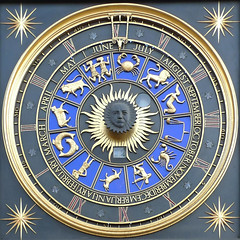
9
New cards
Karl Popper
proposed heavy use of falsifiability- explore all possible explanations and disprove them so that only the truth remains
10
New cards
inductive reasoning
A type of logic in which inferences are based on a large number of specific observations.
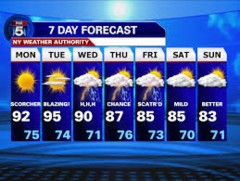
11
New cards
deductive reasoning
reasoning in which a conclusion is reached by stating a general principle and then applying that principle to a specific case (The sun rises every morning; therefore, the sun will rise on Tuesday morning.)
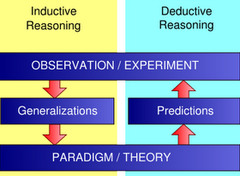
12
New cards
null hypothesis significance testing
In statistics, a test created to determine the probability that the data would yield the same result if there was no relationship between variables
13
New cards
A type I error
Rejecting null hypothesis when it is true
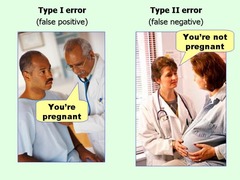
14
New cards
A type II error
failing to reject a false null hypothesis
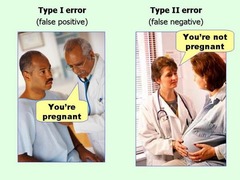
15
New cards
probability values (p-values)
In statistics, the established threshold for determining whether a given value occurs by chance.
Ex. p < .05 means that the same result would only occur 5 times out of 100
Ex. p < .05 means that the same result would only occur 5 times out of 100
16
New cards
Thomas Kuhn
argues that science is social and not truly objective. People's values influence it

17
New cards
Levels of Analysis in Psychology
Biological, Cognitive, Behavioral, Sociocultural
18
New cards
Causality
cause and effect relationship
19
New cards
generalize
extending conclusions to other situations outside study